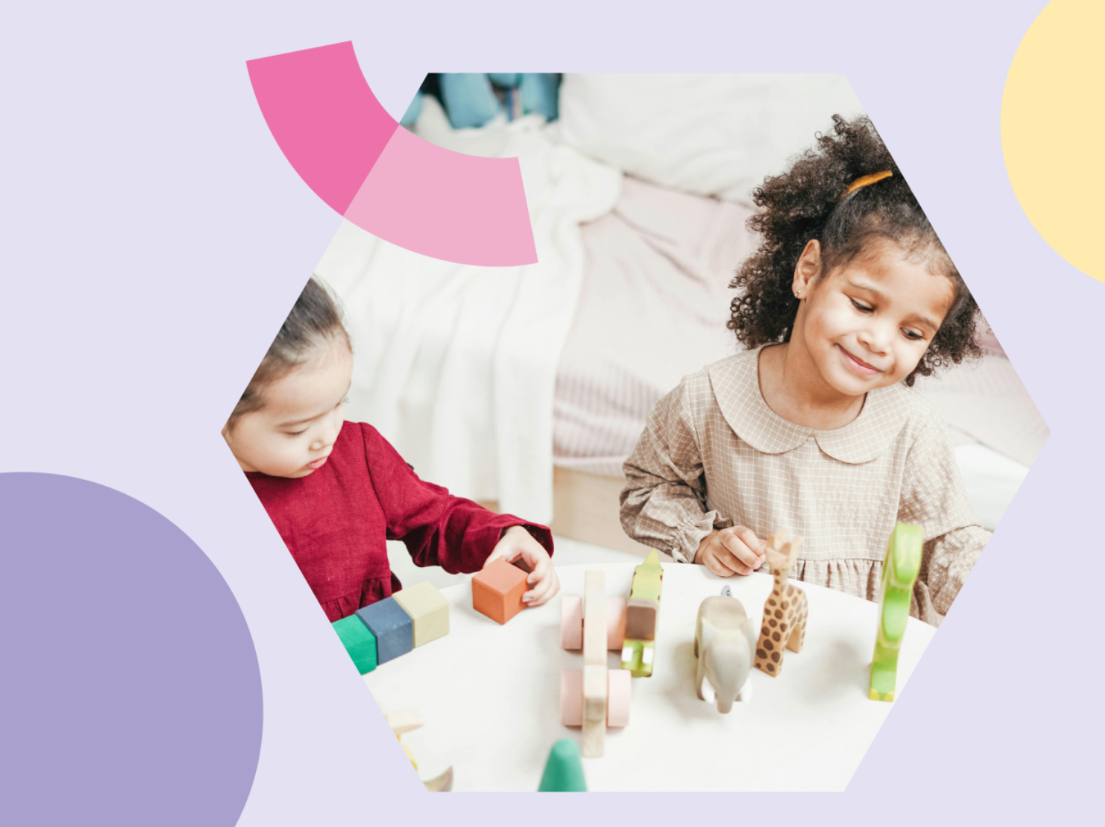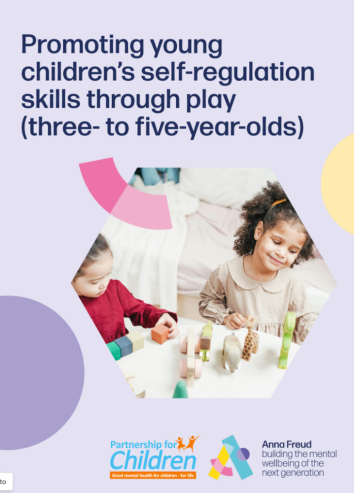Supporting young children’s self-regulation skills

Our Co-CEO, Hannah Baker, in partnership with Anna Freud, has developed a guide of how to effectively support young children’s self-regulation skills.
The guide ‘Promoting young children’s self regulation skills through play’ explains: the science behind self-regulation within the context of key developmental milestones for children in this age range; how to develop strategies and techniques for promoting self-regulation and the vital role that adult-led play can have in modelling and guiding self-regulatory skills (with plenty of example activities).
Self-regulation empowers children to manage their emotions, thoughts, and behaviours in ways that pave the path for positive social interactions, academic success, and overall wellbeing.
Emotional self-regulation: includes a child’s ability to identify, label and communicate their feelings as well as understanding and managing their emotional responses.
Cognitive self-regulation: includes a child’s impulse control, such as waiting their turn and following instructions to stop, sustaining attention, and ignoring distractions, problem-solving, working memory and decision making.
When a child is upset, we need to support them through emotional co-regulation - which means working together with the child to manage their emotions and think about the situation. As children develop their cognitive self-regulation skills, they will be able to start monitoring their own feelings and decide on coping strategies to calm themselves.
Children with effective self-regulation skills are:
- More focused and attentive, making it easier for them to participate in learning activities and absorb new information.
- Children with well-developed self-regulation skills are less likely to exhibit challenging behaviours or engage in impulsive actions, leading to smoother interactions with caregivers, teachers, and peers.
- Self-regulation helps young children understand and manage their emotions. It allows them to express their feelings appropriately, cope with challenging emotions like frustration and anger, and develop a sense of emotional resilience.
- Children with good self-regulation are better equipped to navigate social interactions. They can take turns, share, and cooperate with others more effectively, which are essential skills for forming positive relationships with peers and adults.
Following on from Hannah’s booklet exploring self-regulation for children 3-5 years, our Project Manager, Jayne Carter was invited to represent Partnership for Children as a guest panelist at the Anna Freud webinar - Self-regulation in the early years: the importance of movement and play. It was attended by over 300 practitioners. Jayne was able to share the range of early years support, resources and ideas with the group, including our Early Years Activity Cards.
The webinar was very well received with attendees noting that it provided lots of practical ideas which could easily be included in their own settings, schools or in the home.
Early Years Mind is a free network for any practitioner supporting our youngest children.
Partnership for Children are pleased to be part of this network.
